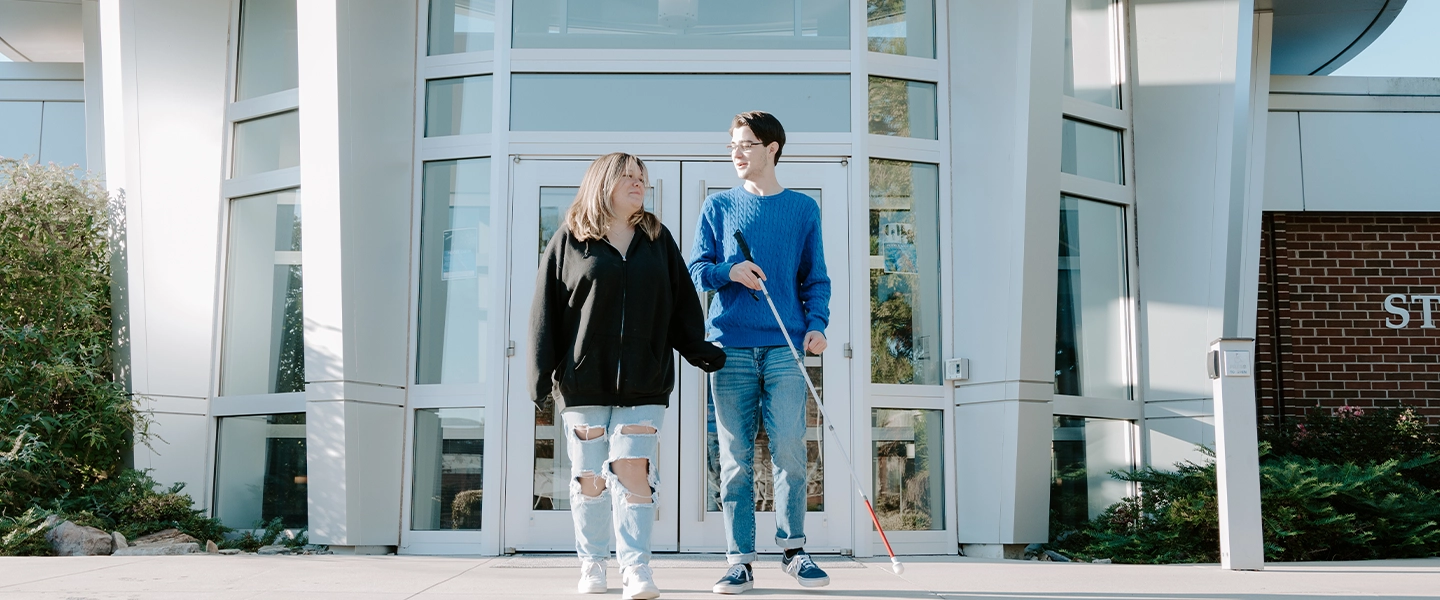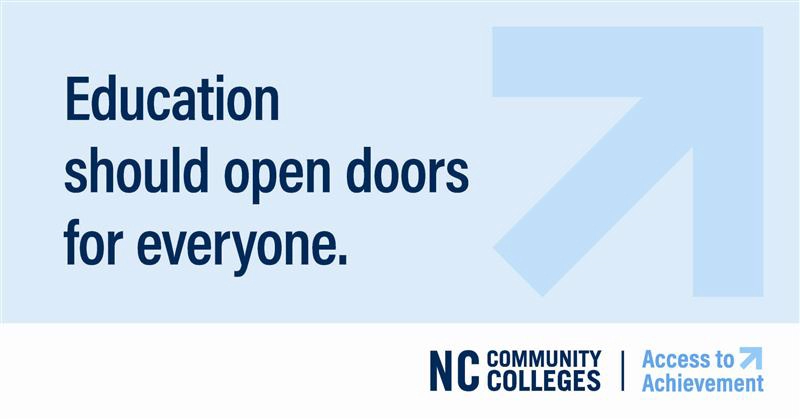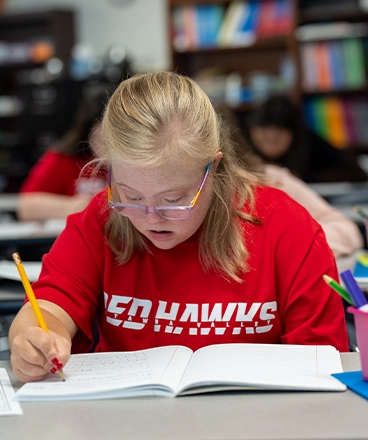
Accommodations
CVCC is committed to facilitating students with disabilities as a part of its commitment to provide equal opportunities in higher education.
A program of services is provided for students with disabilities. Individuals with disabilities (as defined in the Americans with Disabilities Act of 1990 and the Amendments Act of 2008) who wish to make a request for reasonable accomodation or who wish to file a complaint of alleged discrimination on the basis of diability should contact the Counselor for Students with Disabilities and Special Programs.
It is the student’s responsibility to request these services. Current documentation of the disability by an appropriate professional may be required. All information is kept confidential. Students will be required to sign a release of information form before any special contact is made to arrange accommodations. Requests for reasonable accommodation should be made several weeks in advance to allow sufficient time for accommodations to be arranged.
Resources
CVCC is committed to facilitating students with disabilities as a part of its commitment to provide equal opportunities in higher education.
If you are having technical issues with your screen reader, please contact the Technology Help Desk at (828) 327-7000 ext. 4444. Hours are 8:00 AM to 5:00 PM Monday-Thursday. The campus is closed on Institutional Holidays.
Supported screen readers:
Skills for Work, Confidence for Life
Access to Achievement (A2A) connects students with intellectual and developmental disabilities to the support they need to succeed at CVCC. Our A2A program enhances your opportunities to pursue credentials, diplomas, and degrees, fostering an inclusive college experience.
For assistance with A2A contact Access to Achievement Enrollment Manager, Tammy Buff, [email protected] or 828-327-7000 ext. 4819.

Contacts
Kimberly Settlemyre, Counselor, Students with Disabilities and Special Programs
Learning Assistance Center
828-327-7000 ext. 4222
Procedures for Disabilities
Step 1: Request Accommodations
- Complete the Disability Disclosure/Accommodation Request form and return it to the Counselor for Students with Disabilities. This indicates that you are seeking accommodations and are willing to complete all necessary tasks in order to receive services.
Step 2: Documentation and Student Intake/Self-Report
- Use the “Documentation Guidelines” to obtain documentation from a medical or mental health professional. Take the guidelines your medical or mental health care provider so they know what documentation is needed. Documentation of the student’s disability must be current enough to establish current levels of functioning (usually 3 years or less). The disability must functionally limit at least one area of daily living activities.
- Complete the Student Intake/Self-Report as thoroughly and completely as possible. Submit all documentation to the Counselor for Students with Disabilities for review.
Step 3: Meet with the Counselor for Students with Disabilities
- The counselor and student meet to discuss disability, the functional limitations and accommodations that would be appropriate based on the documentation provided. Students must sign a confidentiality statement. If special testing accommodations are needed, testing documentation must be signed. If needed, the counselor arranges for assistive technology training, students sign the borrowed equipment agreements and check small assistive technology items out from the counselor.
- The counselor provides on going counseling to assist the student in utilizing resources and in any other areas that arise while taking classes. *Students must contact the counselor before each semester to renew services.
Step 4: Contact Instructors
- If accommodations are determined appropriate, forms are prepared for the student to give to each instructor where accommodations are needed. The instructors will reply to confirm accommodations and confirmation becomes part of the student’s file. Accommodations are provided at no cost to the student. Personal items such as hearing aides are not provided.

